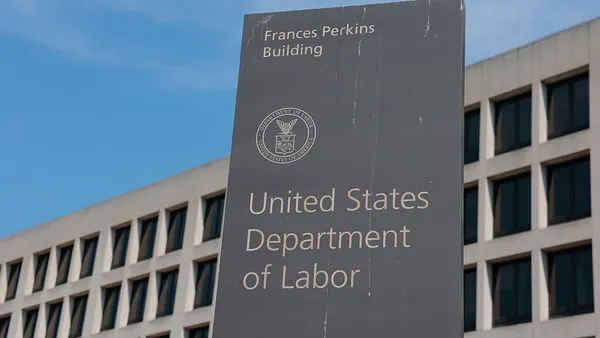Dive Brief:
- Apple's release of its 2017 Supplier Responsibility Progress Report is a yearly evaluation of Apple's suppliers against the company code of conduct, a guideline that highlights over 500 issues and expected behaviors, The Green Supply Chain reported.
- Comprised of 705 total score audits, the process focuses on core violations in such areas as forced labor, false documentation and environmental and safety hazards.
- Bonded labor, or the practice of forcing workers to pay fees to retain jobs in Asian factories, has been aggressively targeted. Apple's policy mandates that the company repay all recruitment fees back to the worker, a cost that resulted in a cumulative $2.6 million repaid to over 1,000 employees.
Dive Insight:
Corporate governance is perhaps the most important component of a multi-pronged effort to combat the various violations that can occur in the supply chain, particularly within second-tier suppliers. While numerous external auditors such as KnowTheChain have emerged to shed light on violations, particularly involving human rights abuses, these organizations' impact is limited. How limited? Their impact may be negligible at best.
Because external auditors as it stands today have zero legal impact and are often hired at the behest of the companies who merely seek a rubber stamp for an audit, corporate governance has to take the forefront. For a company such as Apple, one of the largest companies in the world with a market cap of $550 billion and a brand recognizable everywhere, the impact of ethical sourcing on their brand is significant. The application of rigorous standards, while costly in the short term, has the potential for massive positive repercussions as consumer preferences shift toward ethical sustainability.
Such efforts have an immediate impact, not just a future one. College sports in particular — the perfect intersection of millennial interest in sporting events and ethical sustainability — are a prime example. Companies including Nike, Adidas and Under Armour have significant influence in the shaping of the college landscape. Universities and students alike are taking a prominent approach to bring about a heightened responsibility in how business is done in light of human rights violations.















